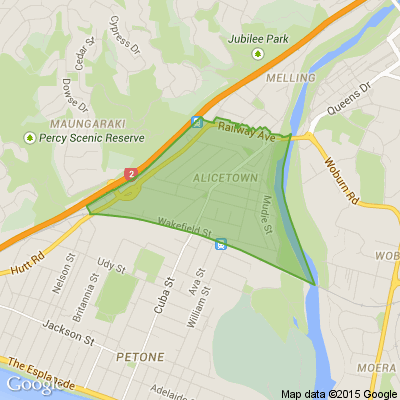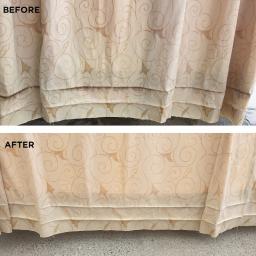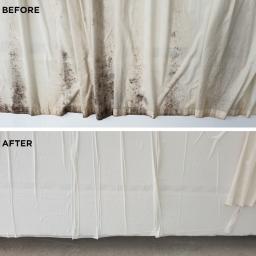Stop Your Curtains Getting Damp and Mouldy
It’s time to bid farewell to summer for another year and start facing the reality that soon it’s going to be cold and damp for a while. As we enter those colder months and condensation appears on the windows, we thought it was a good time to share some tips on preventing mould and mildew growing on your curtains.
What makes mould and mildew grow?
Interestingly, it’s not directly the condensation on your windows that causes mould and mildew because most curtains don’t come into contact with it. Mould and mildew grow when there’s moisture and warmth in the home, which condensation does contribute to.
Just like everything absorbent in your home, as temperatures go up the moisture in the air evaporates and is absorbed into the fabric. As they cool, the moisture changes back from its gaseous state to being closer to its liquid form. In absorbing this moisture they also take in any bacteria it holds. Repeated over time, this is what causes the nasty growths.
The difference between mould and mildew
Mould is a broad term that encompasses multiple identical nuclei and can grow beneath and penetrate the surface of affected material. Mildew is a type of mould that grows on the surface and can therefore be much more easily treated/removed. When it’s live, moulds are orangey or reddish in colour. The black patches we see are actually the hibernating mould spores waiting for the sun to warm them up and bring them back to life.
Where does all this moisture come from?
We live in a pretty humid climate in New Zealand at the best of times; in some areas it’s even greater. But it’s not all weather related. Cooking, showering, drying clothes, unflued gas heaters and simply breathing and existing all produce moisture content within our homes.
Preventing moisture build up and/or drying out your home
• Install a home ventilation system of some kind.
• Crack the windows a little during the day to allow a bit of cool air to flow through your home. North facing windows are best.
• Get a dehumidifier. Emptying this once a day (or more!) will really open your eyes to how much moisture is in your home. Remember the science though, you need to warm the air (and thus the moisture in it) before the dehumidifier can suck it in and remove it.
• Pop a DampRid moisture absorber container on the windowsill behind the curtains.
• Install a ShowerDome and extractor fan in the bathroom.
• Make sure your clothes dryer is vented to the outside.
• Install a rangehood in the kitchen and use lids on pots and pans.
• Change the curtain rail brackets to 80 or 100mm so the curtains are further from the walls and the windows allowing for more air circulation. Bear in mind however, this will likely lower their thermal insulating capabilities.
• Invest in double-glazing. Although this does not prevent mildew it can work to slow the onset.
• Minimise what mould growth feeds on. Clean soft furnishings regularly, clean windows and wipe down window surrounds with warm soapy water.
• Check plumbing for leaks.
• Maintaining an even inside temperature throughout the house helps stop moist air from condensing.
• Insulate well. Start with the ceilings and under floor as a priority, then the walls.
• Close curtains/blinds as soon as the sun goes down.
Don’t worry if it’s too late - Curtain Clean can treat and remove mould and mildew from your curtains. Call us on 0800 579 0501 or visit curtainclean.co.nz to find out more.
Poll: As a customer, what do you think about automation?
The Press investigates the growing reliance on your unpaid labour.
Automation (or the “unpaid shift”) is often described as efficient ... but it tends to benefit employers more than consumers.
We want to know: What do you think about automation?
Are you for, or against?

-
9.4% For. Self-service is less frustrating and convenient.
-
43.4% I want to be able to choose.
-
47.2% Against. I want to deal with people.
Poll: Are you as excited as we are for Te Matapihi’s grand reopening?
Wellington’s Te Awe Library on Brandon St will be closing its doors for good at 5 pm on March 1. It’s been the city’s largest temporary library, and now it’s making way for the exciting return of Te Matapihi Central Library!
We want to know: Are you as excited as we are for Te Matapihi’s grand reopening?
Want all the details? The Post has everything you need to know.

-
46.5% Yes
-
53.5% No
traffic chaos
I note no comments about utter traffic chaos alicetown melling area due to not being able to turn from victoria st on to ewan bridge. You would think council would require 24 by 7 work on such a vital road into lower hutt. what about all the extra pollution due to cars crawling along at 10kmph. I guess council doesnt believe in climate change









 Loading…
Loading…